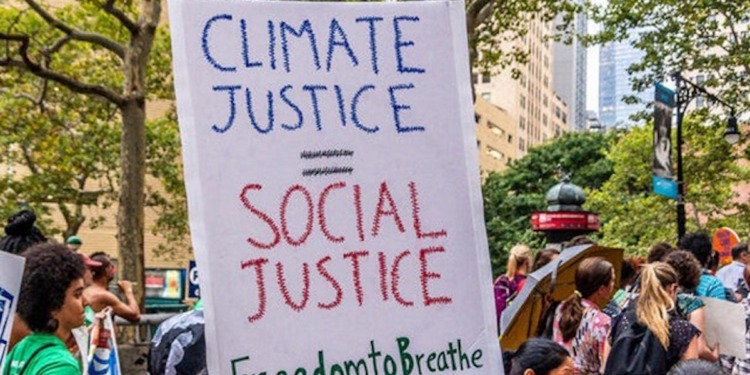Ten months ago, Canada slapped a 10 to 20 per cent tax on cars, planes or other goods with a sticker price of more than $100,000. Unsurprisingly, the move has prompted mixed reaction, as the wealthy and right-wing politicians tried to push back the new tax that had been backed by Trudeau’s government.
Carbon pricing policies, while still an under exploited approach, are increasingly used as a major tool to address climate change – other countries, beside Canada, are either considering them or already launching them.
Ecological economists consider that an income-differentiated carbon tax across goods and services is potentially a major solution.
A new groundbreaking study by researchers at Leeds University (UK), led by Dr Yannick Oswald, on the potential of luxury-focused carbon taxation is confirming that this underexplored approach makes sense and could show the way to a more equitable future – in short, bringing climate justice to all.
This innovative study, published in the academic journal One Earth, considers the distribution of household consumption and carbon footprints across 88 countries, and aims to address the pressing need for fair climate policies.
The findings suggest that implementing differentiated tax rates across goods and services, with higher carbon prices for luxury items, not only significantly reduces global household emissions but also promotes fairness within society.
Carbon taxes focused on luxury consumption are more economically fair than carbon taxes that tax all forms of consumption equally, analysis shows. @yl_oswald
Read more in @OneEarth_CPhttps://t.co/F9S6TaQ9am pic.twitter.com/dDpdpd4EgM
— Cell Press (@CellPressNews) July 11, 2023
What does the study show?
The primary objective of the study was to explore the distributional implications of carbon taxation, specifically focusing on differentiated tax rates across various goods and services.
While previous research primarily examined uniform carbon taxes applied across sectors, this study sought to shed light on the potential benefits of tailoring taxation to distinguish between luxury and basic consumption.
By doing so, the researchers aimed to assess the impact of this novel approach on reducing global household emissions and addressing inequalities.
To comprehensively evaluate the effects of luxury-focused carbon taxation, the researchers employed a modeling framework that accounted for the consumption patterns and carbon footprints of households, encompassing both the global north and south.
The study considered various scenarios, comparing the outcomes of no policy implementation, a uniform carbon tax, and the proposed luxury-focused carbon tax.
Related Articles: Taxing the Rich: 5% Tax Could Lift 2 Billion out of Poverty, Report Shows | The Carbon Tax Works For Billionaires: The Climate “Karma Tax” Works for the Rest of Us | Do We Need to Sacrifice Our 1.5 °C Goal to End Poverty? | We need to invest in Climate Justice to achieve sustainability
By simulating the effects up to 2050, the researchers sought to project the long-term impact of this policy intervention.
The findings of the study are both compelling and encouraging. As explained in the report,after testing this new approach, the researchers came to the conclusion that differentiated carbon taxation was “generally fairer with respect to emissions abatements and financial burden across the income spectrum of households.”
The new carbon tax policy would result in a reduction of approximately 6% in global household emissions annually when compared to no policy implementation.
Moreover, the study demonstrated that this approach effectively mitigated inequalities, not only in comparison to a scenario with no policy but also in comparison to a uniform carbon tax strategy (which is the one most commonly applied in countries where a carbon tax exists).
The researchers projected that by 2050, the luxury-focused carbon tax policy could save approximately 100 gigatonnes of carbon dioxide equivalents.
This represents a substantial achievement, as explained in the study, it “is 75% of what is needed for households to stay within a 2° consistent climate pathway and almost a third of what is needed for 1.5° consistency.”
The study’s findings highlight the significance of implementing targeted policies to combat climate change while simultaneously promoting fairness and equity.
The study in fact higlights the different burden of emissions, with “the global top 1% of individuals [being responsible] for 10%, the top 10% for 45%, and the bottom 50% for less than 15% of emissions.” (bolding added)
It is obvious that the burden of emissions falls squarely on the shoulders of the one percent and – from a policy point of view – the top ten percent, a class of individuals that is easily identified by the fiscal authorities.
New tax burden is placed on the biggest carbon emitters
The study’s focus on luxury-focused carbon taxation holds immense significance for climate policy development.
By targeting luxury consumption, which tends to be associated with higher emissions, this approach not only incentivizes behavioral change among high carbon emitters but also ensures that those who contribute less to carbon emissions face fewer financial burdens.
Such a policy framework has the potential to encourage sustainable consumer choices and reduce the overall carbon footprint of households globally.
Additionally, the study contributes to improving fairness in the context of climate change.
By taking into account the distribution of household consumption and carbon footprints, the luxury-focused carbon tax policy effectively addresses inequalities, thereby promoting social justice.
It allows for a more balanced distribution of the costs associated with climate change mitigation, ensuring that the burden does not disproportionately fall on those who are already vulnerable or economically disadvantaged.
As we strive for a just energy transition and work towards a sustainable future, such targeted policies that address consumption patterns and promote behavioral change can play a crucial role in combating climate change while ensuring a more equitable society for all.
Editor’s Note: The opinions expressed here by the authors are their own, not those of Impakter.com — In the Featured Photo: Climate Justice is Social Justice. Featured Photo Credit: Labour Outlook.










